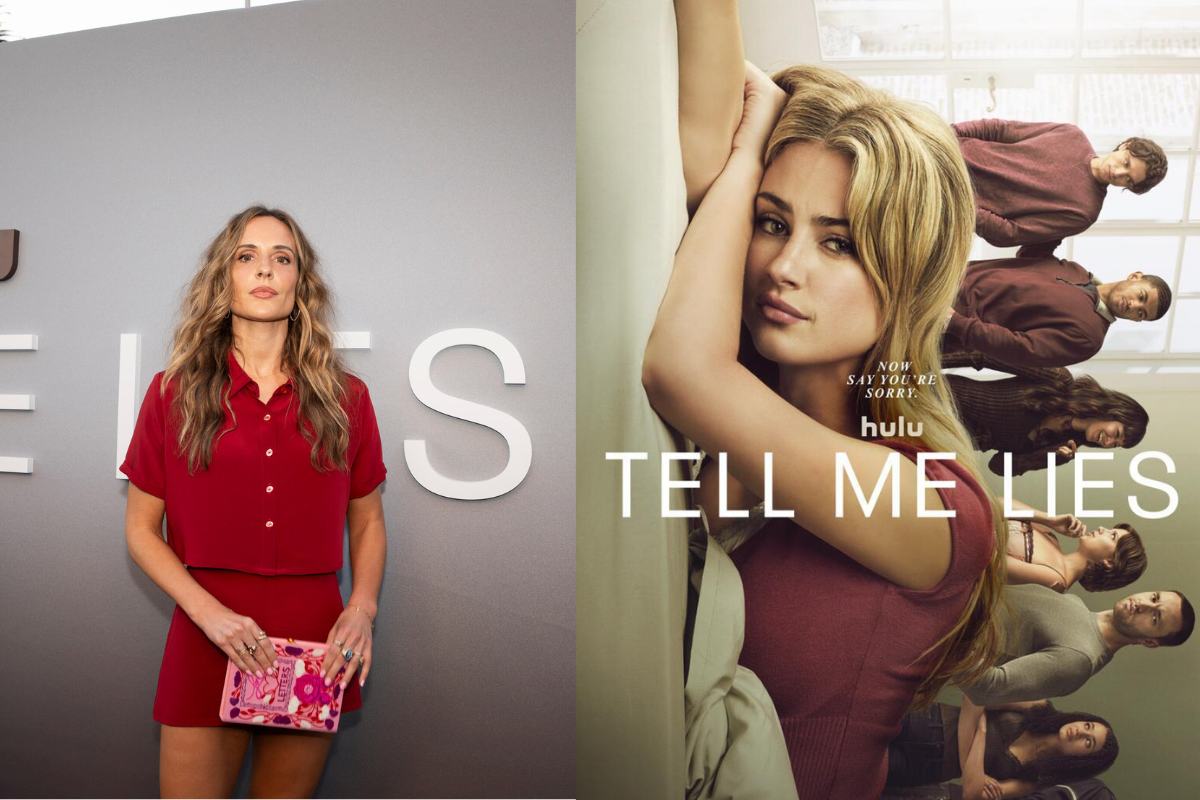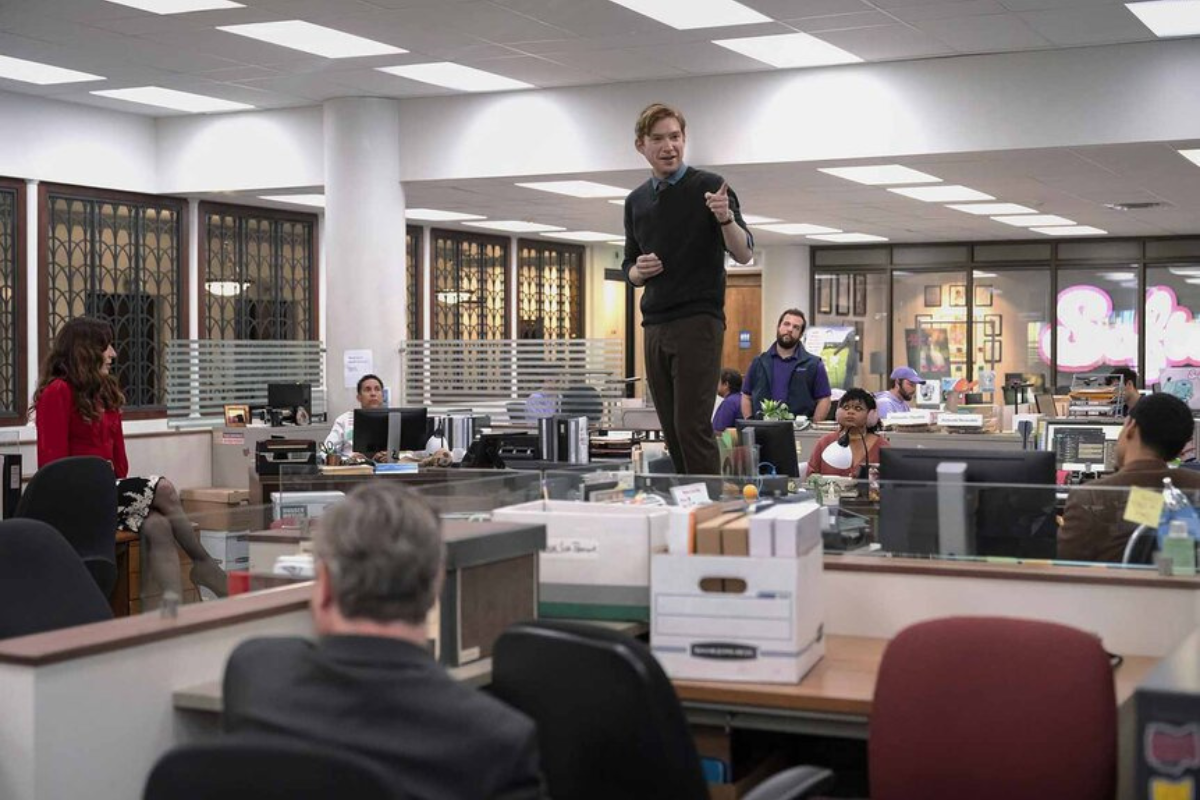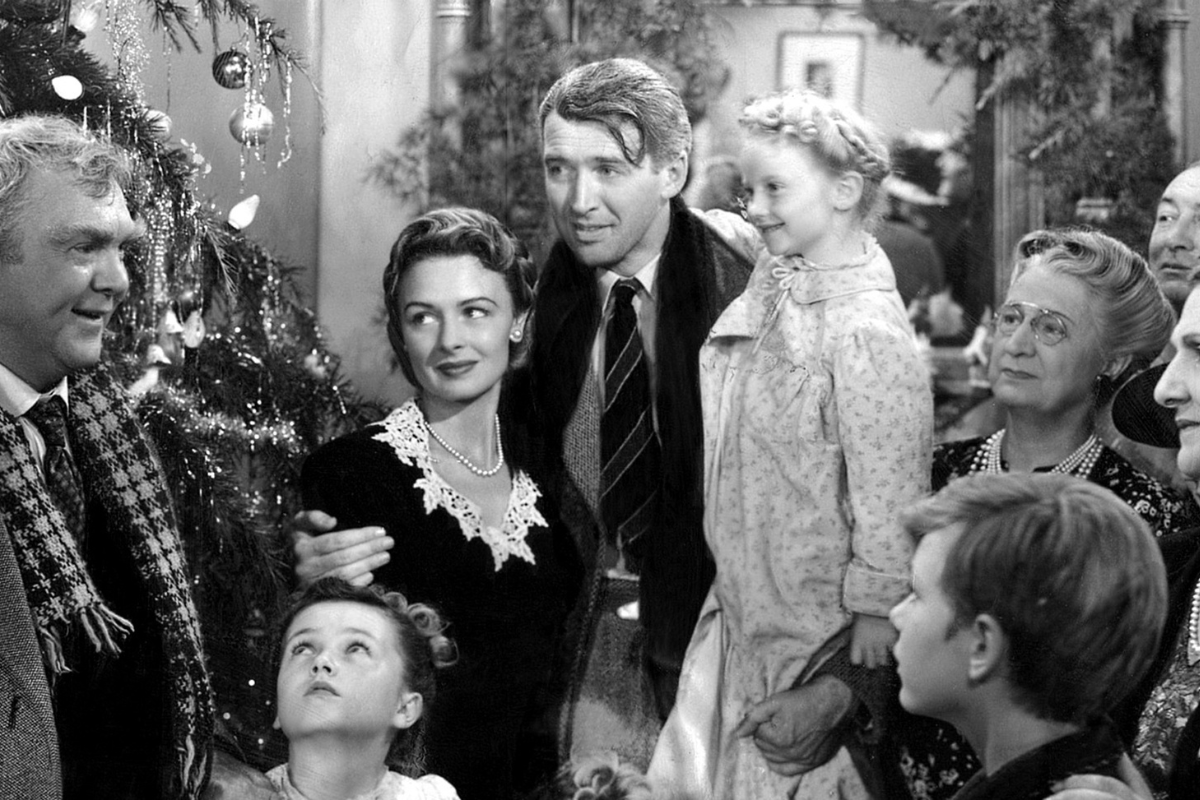Breaking & Entering: Producer Mark Teitelbaum Offers Insights on the “New Normal” in Television
Barri Evins brings you an inside perspective, interviewing working professionals throughout the industry, offering insights for writers in uncertain times. Television Producer Mark Teitelbaum discusses working while under quarantine, changes on the set, and what will make a pitch a viable TV project as content-hungry networks and streamers plan to reopen.
In an effort to drum up more material for this ongoing series of insider insights, I once again posted on Facebook, asking my industry pals:
“What should writers speccing in film & TV consider for content demands on the other side?”
My intent was to ask a question that would lead to some valuable answers for writers in uncertain times. However, I got some push back from writers in the thread, ranging from wanting to know why I was looking to tell writers what to write, to the idea that there won’t need to be restrictions in place to safeguard health on the set.
Cities, counties, states and nations around the world are striving to figure out how to safely reopen film and television production – with input from guilds, unions, studios, and even epidemiologists, in an effort to guarantee safety on the set.
I’ve tried to keep up with reading about efforts to move back into production from around the world. On my Facebook page, Big Ideas for Screenwriters, I’ve started “Covid Insights: Industry Scoop in Uncertain Times.” I’m sharing interesting and insightful articles on what’s happening in the industry. Each includes a quote that stands out for me, and the date of publication, as the situation is constantly evolving.
In an attempt to “bottom line” this issue:
If people don’t feel safe on the set, they will be afraid to go to work. Safety measures and health checks can be put into place. Modifications as to how things are done can be made in an attempt to prevent the spread of illness. However, if production opens only to have cast or crew become ill, then it would be halted for an unknown period of time, at an enormous cost. Therefore, it will become impossible to find the essential production insurance required in the first place. But insurers will be leery of the potentially huge risk. Thus, the conundrum of how the industry gets back to work.
A vast oversimplification of a complex situation rife with unknowns and uncertainty.
The long awaited Industry-Wide Labor-Management Safety Committee Task Force completed a twenty-page White Paper on June 1, “to establish recommendations for governments to authorize the safe resumption of motion picture and television production activities within their jurisdiction.” It was sent to New York Gov. Andrew Cuomo and California Gov. Gavin Newsom and state and local officials. Find an excerpt and a link to download the report at the end of this article. Well worth the read.
Instead of my monthly column, this weekly series is devoted to bringing you a perspective from inside the industry through interviews with working professionals on the impact of the pandemic on their work lives, what they think about the future, and any insights they can offer writers in uncertain times.
As a timely and appropriate thank you, each person I interview is being gifted with a face mask courtesy of MaskMe. One of my screenwriting consulting clients pressed pause on the rewrite we were working on together to use her graphic artist skills to creating a website where people could purchase masks with rocking design choices and a reusable N95 material insert. Best excuse ever for not writing. You can check out “Cool Masks for Cool People” at MaskMe and see which hip style my interviewee chose!
This week’s interview is with Mark Teitlebaum, manager/producer, Teitelbaum Artists
About Mark: In his role as a producer, Mark developed Pulitzer and Tony Award-winning playwright Tracy Letts’ (August: Osage County) play Superior Donuts as a half-hour comedy starring Judd Hirsch and Katey Sagal that ran for two seasons on CBS; combined multiple award-winning writer David E. Kelley (Big Little Lies) with the incomparable Robin Williams to produce the highly acclaimed half-hour comedy, The Crazy Ones; produced a new incarnation of the long-running sketch comedy hit MADtv for The CW; and is developing the iconic Jerzy Kosinski work Being There as a stage play for West End and Broadway.
Since the beginning of his career as an agent at the William Morris Agency, Mark’s diligence and ability to weave through the complexities of the business secured him as a well-liked and highly admired industry leader. During his time at the Agency, where he ultimately served as Vice President of the Film/Television Talent Division, Mark played an instrumental role in the careers of some of acting’s most legendary names, including Denzel Washington, Christopher Reeve, Garry Shandling, Jack Lemmon, Dick Van Dyke, Andy Griffith, and many others.
Starting his own management firm in 1991, Mark’s ability to identify and secure opportunities has helped him launch, sustain and at times reinvigorate careers that is evident in the career defining roles of his clients, including Emmy Award-winner Hector Elizondo’s role in Pretty Woman, and Allison Janney’s breakout role in The West Wing. Mark is also credited with out-of-the-box thinking in taking a relatively unknown Ricki Lake and building her into a talk show phenomenon, designing the ability for actors Treat Williams and Paul Michael Glaser to launch directing careers and pairing Academy Award winning and hearing impaired actress Marlee Matlin with Sprint. Mark sold and negotiated book deals, including Jennifer Grant’s well-received memoir of her father, Cary Grant, entitled Good Stuff. Mark is involved in his industry, having twice sat on the Academy of Television Arts and Sciences Emmy Awards Committee.
Barri Evins: What’s your day-to-day work life like?
Mark Teitelbaum: My morning hasn't changed. I'm up at 6am. I get my cup of coffee. I sit down. I start doing some emails. I map out the day. I take an hour, hour and a half off to work out. Then 9:30 or 10:00 I'm ready to get back to my workday. That part hasn’t changed. The difference is there is virtually almost nothing else to do. So, I'm kind of done at 10am. On Friday, my wife asked, “What’s on your agenda to do today?” I jokingly replied, “My plan is to finish the eight things I had to do on Monday and somehow never quite got around to doing.”
The morning is the same, but there is so much less to do, because a large part of what I did was networking. It was kind of constant networking. Constant looking for the next project, the next property, looking for the next "Intellectual Property." Meeting new people, getting together with old friends who are executives and that's gone out the window. I've also found that people are kind of over the Zoom. They’re for sure over the Zoom social activities. And Zooms that are going on are scheduled pitches. I have literally two of those a week – not five a day. So I reorganize the pantry and clean out the closet and get new tires on the car. That whole list of To-Do things, I've pretty much now gone through all of them. We’ve been on lockdown so long that some of those things that I did at the beginning are ready to be done again! A few emails and phone calls throughout the day – a smattering and a small handful, so it kind of takes me through the day with a lot of air in between. The other difference is around 4:30-5pm, I’m just like, f*** it. If I haven’t done it yet today, it’s not getting done. I’m over it. And I go have a life. I’m having a great time to tell you the truth.
BE: You said you're doing pitches?
MT: I am, but it’s more internal stuff, with production companies. I have a project I’m working on with Plan B. I have something with Storyworld. I haven’t set up any network pitches, or streaming or HBO, or premium pitches. It’s not really outward facing; it’s more internal facing. And for me, it's more managing the business that I had going on before we went into quarantine, just managing it, keeping going, than really finding new stuff.
BE: So projects already in development?
MT: Some stuff that’s already in development. For example, I have a project in development with Plan B intended for Amazon, a series, although we haven’t gone to Amazon yet. We’re still putting the pieces together to take it out as a pitch, but I’m working with them to hone it, get it right. I have a movie at Lifetime.
I haven’t pitched to buyers yet, and what I’m finding is the buyers are not really actively buying on Zoom unless you have the “must buy” project. But if you have the thing that really requires the right pitch, at the right moment, with the right tone, in the room – you kind of need to be in the room. Zoom pitches are being discouraged.
BE: TV writer/producer Jeff Astrof said that the problem with the Zoom meeting is: “You can’t take the temperature of the room.”
MT: You can’t. And I don’t think the buyers know what they’re buying for. I don't think they know what they’re going to be programming. And I know they don’t know when they’re going back into production. So, you’ve got that. Most of these buyers – most of these people who are taking the pitches – are not convinced they’ll have a job. I think there's some fear out there.
It's a great opportunity to put your IP together, to hone your pitches, to hone your material and get ready, and maybe to align yourself with the right partners. William Goldman’s statement couldn’t be more true: “Nobody knows anything.” I don't know who’s buying what, and if they’re buying, they don’t know when they're making it. I’d rather get the material right now, and get ready to pitch when buyers are confident again.
BE: Do you think TV is going to change?
MT: First of all, there is no less need for content. The television world is not going to diminish too greatly. I don’t know who is going out of business soon. I don’t know if there is room for all these streams. I don’t know if there’s room for Quibi. But there are a lot of buyers and a lot of need for content. I also think that in the long-term the world will go back to some version of what it was pre-pandemic because there will be a vaccine, there will be herd immunity. People are people. We’re social animals.
I don’t know that the craft service table will ever look the same again. I don't know that you will ever need to cram 150 people onto a set again. But for all intents and purposes, I think it will go back to some version of normal. There will be scripted. There will be reality. I think we’ll figure out good camera angle tricks to have less people on set. I think if you're making your living as an extra, you might be f*****. In terms of scripted drama, it's not going away. It will eek its way back to pre-pandemic levels in the not too distant future. My prediction is a year and a half or two.
I think there will be a big handful of COVID-inspired material, but I think that will be short-lived. Jenji Kohan has an anthology series on Netflix that she’s trying to shoot – it’s all on Zoom – that’s the conceit. In six months this lockdown will probably be a thing of the past. I don’t know how many pandemic and quarantine projects we’re going to stand.
Within two years it will look like a version of what it looked like pre-pandemic.
BE: Do you think buyers will be looking for television projects that are smaller and more contained for starters? There isn’t even an agreement on production safety standards. Should writers think about writing things that are four people in a house because that’s how we’re going to start back?
MT: I do think that.
I think part of any fit right now will be how can you produce the project with whatever protocols you’re going to have to work under. Part of that pitch will have to be, “It’s going to look big, and we can produce it small,” Or, “It’s going to look small, and we’re going to produce it small.”
Writers should not be writing an episode that takes place in a crowded concert, ballpark, casino. You’re just not going to get to shoot that. Don’t write about the caper that takes place at Coachella. You’re not making that any time soon.
BE: I read a piece in Medium that speculates that every single department will potentially become driven by VR.
MT: What will be really fascinating is that we, in this business, have figured out that there is a lot that can be done over the Internet. I think you still need a lot of social interaction and creative interaction, but there is a lot of craftwork that can be done virtually. It will be interesting to see what happens at the union level. The unions are not going to want to see a huge percentage of the positions eliminated – which is what will happen. You honestly don’t need all those people. A lot of those positions on a set are union-mandated positions. There’s going to be push back. It will be interesting to see what happens. I can’t predict it. There is somewhere between how you can actually do it and what the unions are going to allow.
BE: It sounds like you know your life as a producer is moving forward. What about your life as a manager? Are you still working with writers?
MT: I haven’t represented writers in a long time. I stopped representing writers and just started working with them as a producer. I’ve been working with writers as a producer, but not as a manager. My goal was to be a producer. As a producer, I bring in the IP, I own the shopping rights, I make the deals.
My manager job is primarily with a handful of actors at this point. I do talk to them once a week. I manage their ongoing work but everyone I have is currently employed in television, so it’s just managing when they’re going back to work, what’s going on with their sets, what’s going on with their studios. They’re all just temporarily shut down. A phone call here or there, not a lot. My assistant is working from home. She helps facilitate things for clients.
BE: Do you think that there's going to be a big appetite for buying at a certain point? Content is going to be needed. Programming is going to be needed. Rachel Miller Lamb said we've trained people to “sit on their ass for 3 to 4 hours a day streaming.”
MT: “Boy, I hope so!” is my answer. I think people have gotten used to watching. I think they’ll come back and find that which they want to watch. I don’t think these outlets are going away anytime soon and they will all need their product. I think they’re also finding out that the big, giant packaged projects are not necessarily the winners. Just because you have Reese Witherspoon and Kerry Washington in something doesn’t necessarily make it great or a hit. I hope there will be a big appetite for buying. I think people have discovered these outlets.
BE: Are you actively looking for material to feed that hunger?
MT: I’d love to be actively looking for that stuff, but one of the things I don’t get to do is the day-to-day networking. I don’t have agents just sending me material willy-nilly. I‘m not getting to network with those agents or agencies. None of them represent writers anyway, really. So it’s about IP. I’m keeping the writer relationships that I have alive. I have about 50 names on my phone sheet of people who I had meetings scheduled with – networking meetings – drinks, lunches, in-office meetings – that were cancelled. Temporarily postponed. I’m just waiting for the quarantine to be over and the restaurants to open, or at least the bars to open, so I can get back in the room with people. By the way, you’re on that list, Barri, you’re one of those fifty. For me that’s where great IP comes from. It’s just talking with people, finding stuff that they have, what ideas they have, what we can team up on. So I call it “inactively looking.”
Did I earn my mask?
BE: Mark most certainly did. A MaskMe mask in his choice of…
Camouflage Blue!
I think it will bring out the color of his eyes.
He also earned something to do at 10:15am. We managed to get a hint of a drinks meeting in at the end of our interview, so I’ve sent him a project to read. One that I think meets his guidelines for what revamped production will look like in its early stages. Small cast, contained setting, big message. I’d be lucky to partner with Mark.
The #CovidInsights Article of the Day is the The Industry-Wide Labor-Management Safety Committee Task Force twenty-page White Paper:
The Industry-Wide Labor-Management Safety Committee Task Force respectfully submits the following guidelines for consideration and adoption for the resumption of motion picture, television, and streaming productions in an environment that minimizes the risk of contracting or spreading COVID-19. These recommendations set forth the consensus of the Task Force and outline guidance regarding protective measures to be used, including regular screening, diagnostic testing, use of personal protective equipment, cleaning and disinfecting work sites, and appropriate response should an employee contract COVID-19 or be exposed to it.
Download and read the entire piece here.
As part of the #NewNormal, I’ll sign off as I do with every email, call, text and birthday greeting now:
Stay safe and be well!
Get tips on networking online and off with our free download!
Barri Evins draws on decades of industry experience to give writers practical advice on elevating their craft and advancing their career. Her next SCREENWRITING ELEVATED online seminar with 7 monthly sessions plus mentorship will be announced in 2025. Breaking & Entering is peppered with real life anecdotes – good, bad, and hilarious – as stories are the greatest teacher. A working film producer and longtime industry executive, culminating in President of Production for Debra Hill, Barri developed, packaged, and sold projects to Warners, Universal, Disney, Nickelodeon, New Line, and HBO. Known for her keen eye for up and coming talent and spotting engaging ideas that became successful stories, Barri also worked extensively with A-List writers and directors. As a writer, she co-wrote a treatment sold in a preemptive six-figure deal to Warners, and a Fox Family project. As a teacher and consultant, Barri enables writers to achieve their vision for their stories and succeed in getting industry attention through innovative seminars, interactive consultations, and empowering mentorship. Follow her on Facebook or join her newsletter. Explore her Big Ideas website, to find out about consultations and seminars. And check out her blog, which includes the wit and wisdom of her pal, Dr. Paige Turner. See Barri in action on YouTube. Instagram: @bigbigideas X: @bigbigideas







